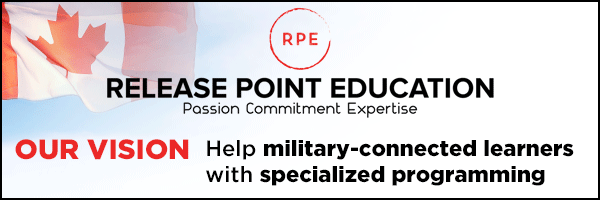Anne-Marie Boulay, Associate Professor in the Department of Chemical Engineering, Gunes Karabulut Kurt, Associate Professor in the Department of Electrical Engineering, Sarath Chandar Anbil Parthipan, Assistant Professor in the Department of Computer Engineering and Software Engineering, and Louis-Martin Rousseau, Full Professor in the Department of Mathematical and Industrial Engineering obtain support from the Canada Research Chairs Program to carry out research mandates.

Left to right: Professors Sarath Chandar Anbil Parthipan, Anne-Marie Boulay, Gunes Karabulut Kurt and Louis-Martin Rousseau
The Government of Canada, through the Ministry of Innovation, Science and Industry, has announced financial support totalling $3.8 million for the Tier 1 Canada Research Chairs held by professors Karabulut Kurt and Rousseau and the Tier 2 Chairs held by professors Boulay and Anbil Parthipan.
Tier 1 Canada Research Chairs are held by outstanding researchers who are acknowledged by their peers as world leaders in their fields. They receive $200,000 in funding annually for seven years and the Chairs are renewable.
Tier 2 Canada Research Chairs are held by exceptional emerging researchers acknowledged by their peers as having the potential to become leaders in their fields. These Chairs receive $100,000 in funding annually for five years and are renewable once.
The federal government, through the Social Sciences and Humanities Research Council of Canada (SSHRC), the Natural Sciences and Engineering Research Council of Canada (NSERC) and the Canadian Institutes of Health Research (CIHR), is contributing a total of $133.7 million in support for 82 new Canada Research Chairs and 75 renewed Chairs.
"Congratulations to these talented recipients from all across the country who are doing the groundbreaking work that will contribute not only to Canada's health and well-being but also to the world's," said the Honourable François-Philippe Champagne, Minister of Innovation, Science and Industry. "Through this funding, the Government of Canada is investing in the next generation of researchers and inspiring them to continue to think outside the box and tackle the challenges of today and tomorrow."
The Honourable Mark Holland, Minister of Health, added: "My best wishes to all of the recipients of these grants, awards and scholarships. The government is pleased to invest in your diverse array of health, natural sciences and engineering, and humanities and social sciences research projects because we know that your ideas, passion and hard work, as well as the evidence you uncover, are instrumental in improving the health and quality of life of people in Canada, and your findings contribute to the international research effort around the world."
And the Honourable Randy Boissonnault, Minister of Employment, Workforce Development and Official Languages, noted: "Our government is funding the top-tier researchers and scientists whose work makes Canada a world leader in research and innovation. These projects from reimagining teacher education with Indigenous wisdom traditions to creating equity in mental health care to researching the impacts of space radiation and weather on Earth's climate will help transform today's ideas into tomorrow's solutions. This is why Canada is an innovation leader."
Dr. Ted Hewitt, President of the Social Sciences and Humanities Research Council and 2023 Chair of the Canada Research Coordinating Committee, concluded: "Canada's researchers, scientists, students and institutions are increasingly working together across disciplines to find innovative solutions to local, national and global challenges. Their work and initiatives are vital to providing the tools, knowledge and insights needed to enhance the well-being and prosperity of Canadians and others around the world."
Following are descriptions of Polytechnique's newly created Chairs and the renewed Chair.
Tier 1 Canada Research Chair in New Frontiers in Space Communications
Holder: Gunes Karabulut Kurt, Associate Professor, Department of Electrical Engineering
There is emerging demand for new satellite communications network (SCN) infrastructures to overcome current congestion in ground-based networks and deliver communications services on a global scale.
Space-based networks are envisioned as integrated, multilayer networks operating on a variety of space platforms, including low-earth orbit (LEO) satellites. Supported by additional SCN assets (orbiters, landers, rovers and even crew members), the scope of these networks extends to beyond-Earth connectivity. The goal of the Canada Research Chair led by Professor Karabulut Kurt is to develop reliable, secure communications technologies to support development of SCNs to their full potential. The Chair will also tackle global challenges of equitable access and explore the new frontiers of space communications.
Tier 1 Canada Research Chair in Health Care Analytics and Logistics
Holder: Louis-Martin Rousseau, Full Professor, Department of Mathematical and Industrial Engineering
As the healthcare community grapples with the prospect of making up for considerable numbers of tests cancelled or postponed because of the pandemic, available human and material resources will be under enormous pressure, compounded by the labour shortage affecting the healthcare sector and society as a whole.
The purpose of this Canada Research Chair led by Professor Rousseau is the design and development of analytical models and their transfer to communities of practice. The research conducted aims at optimizing human and material resources to improve patient care trajectories. The Chair will focus its work on homecare services, cancer treatment and complex hospital logistics, with particular attention paid to the logistics of diagnostic tests.
Since increased levels of care delivery must not come at the cost of psychological distress among staff, which has resulted in thousands abandoning the healthcare profession, one of the Chair's objectives is to develop inclusive, equitable schedules that accommodate caregivers' day-to-day and cultural realities and also consider their work-life balance. Professor Rousseau will also directly investigate questions of equity, diversity and inclusion in the predictive models that are used to allocate organs available for transplantation, notably for bone marrow and liver transplants.
Tier 2 Canada Research Chair in Lifelong Machine Learning
Holder: Sarath Chandar Anbil Parthipan, Assistant Professor, Department of Computer Engineering and Software Engineering
The ability to adapt quickly to new challenges in a constantly evolving world is a crucial element of human intelligence. Humans succeed at this by gathering knowledge throughout their lives, building on it and reusing it to accomplish new tasks. Although research into machine learning has made substantial progress thanks to advances in the field of deep learning, machines' limited ability to adapt to changes in the world remains a significant constraint.
The Canada Research Chair led by Professor Anbil Parthipan intends to address that constraint by exploring the paradigm of lifelong machine learning. Lifelong learning systems, which assimilate multiple tasks over time, should be able to transfer knowledge acquired previously to newer tasks and learn how to resolve them efficiently.
Consequently, this research will develop new architectures that leverage modularity and long-term memory to develop knowledge over time. The program will also focus on development of novel learning tools such as optimization algorithms designed for lifelong learning, techniques for learning new tasks using text-based instructions and interactions, and methods for exploiting recent advances in pre-learning to build systems that can be continuously adapted to the performance of new tasks. These complementary research directions are intended to help overcome the fundamental shortcomings of modern neural network-based learning systems, such as catastrophic forgetting and capacity saturation, and to allow a system to transfer knowledge acquired when learning a new task to improve tasks it has already performed and will perform in the future.
Tier 2 Canada Research Chair in Impacts of Plastics in the Environment
Holder: Anne-Marie Boulay, Associate Professor, Department of Chemical Engineering
Plastic litter affects species and ecosystems through ingestion and entangling and, potentially, human health through ingestion or inhalation. Although environmental policy-makers have begun introducing measures to address this problem, lifecycle analysis (LCA) a tool frequently used to inform environmental decision-making does not yet consider the consequences of plastic litter, thus limiting its application. Consequently, the potential benefits of environmental measures (e.g., bans or substitutions) cannot be properly assessed, and this could have harmful effects on ecosystems and human health.
The primary objective of the research being led by Professor Boulay, therefore, is to develop new models that incorporate the impacts of plastic litter into LCA.
Our congratulations to professors Boulay, Karabulut Kurt, Anbil Parthipan and Rousseau!
At the same event, the government also announced support for Polytechnique professors in the form of contributions from the Canada Foundation for Innovation (CFI) John R. Evans Leaders Fund and the Government of Québec, and awarded prestigious Vanier, Banting and Doctoral scholarships and fellowships to members of our graduate student community.
Learn more
- Professor Sarath Chandar Anbil Parthipan's expertise
- Professor Anne-Marie Boulay's expertise
- Professor Gunes Karabulut Kurt's expertise
- Professor Louis-Martin Rousseau's expertise
- Department of Chemical Engineering website
- Department of Electrical Engineering website (in French)
- Department of Computer Engineering and Software Engineering website (in French)
- Department of Mathematical and Industrial Engineering website (in French)











